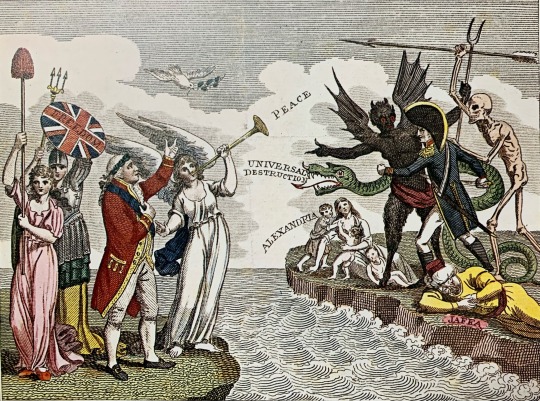#modern age France
Explore tagged Tumblr posts
Text

Porte fortifiée, Abbaye du Bec-Hellouin, Normandie, France
#fortified gate#Bec-Hellouin Abbey#middle ages#renaissance#modern era#architecture#art history#art#archeology#history#Europe#France#Normandie#Le Bec-Hellouin
313 notes
·
View notes
Text



French Communist Party Headquarter
Architect Oscar Niemeyer
#french#communist#party#headquarter#french communist party headquarter#oscar niemeyer#oscar#niemeyer#architecture#design#modernism#paris#france#paul chemetov#paul#chemetov#interior design#glass#cement#space age#space age design
2K notes
·
View notes
Note
What year does synergized take place?
There is no set year, but it takes place sort of in the mid-2000s, at least technology-wise for humans. Aesthetically, it's somewhat a mix of multiple decades.
I set the technology at the mid-2000s for two main reasons. One a lot of my inspirations for this project are shows/comics from around that time, and two, the major reason I don't want to write smart phones or modern type social media. I don't find it fun to write (mostly modern social media integration), and what is considered modern changes so fast. No matter how up-to-date I try to keep it, the nature of a long-term project like this, it will fall behind anyway, so why not set it slightly in the past where I already know we're human technology is at and will go...
I kinda got a light alt-history thing going on where no real-world brands, cities, or countries are name-dropped. It feels pretty close to our world, but occasionally, a character will mention something like "at least Earth only had one world War" or how theirs a town that and all the people living in it mysteriously all turned into solid metal like 300 years ago, also it just a tourist attraction you can just visit now or religions/holidays being lil different from the real-world ones, the vibes are definitely east coast America, and it is sorta set there but it is definitely not a 1 to 1 with the real world (sorta how Steven universe handled things)
#bet you weren't expecting to get a long awnser lol#im basing my Europe map off the awful Europe map in g1 with the giant france#making that one g1 animations error/horrible map canon#i dont wanna make refrances jokes or plot points based on modern things that age out of date in like two years#i like using social media from time to time but i hate writing it and anything anyone writes about it becomes out of date in like 3 years#the alt history stuff isn't supper deeply dwelled into unless it realates to cybertronian stuff#like the many things that feel off the crashed ship#transformers#transformers fan continuity#tfs#transformers synergize#ask answering#text post#maccadam
97 notes
·
View notes
Text
I need more franco-belgian interactions. I need more François and Emma headcanons. I need them to be friends. I need them to be silly. I need more of them please bro please please pl-
#temmie talks#been thinking about them all day#Hetalia fandom please consider Emma and François as friends esp in the modern age pls I need them to get along#delete later#I can't speak for their relationship politically and historically bc I need to do more research but when I see the amount of times France#and Belgium (and luxembourg!) collaborate in creative fields I just 😩 Them!!#also I think françois needs more female friends okay
14 notes
·
View notes
Text

Centre of New Industries and Technologies, La Défense, 1974. From the Budapest Municipal Photography Company archive.
64 notes
·
View notes
Video
Wrecked in Le Magouër, Bretagne, France von Emmanuel Lemée Über Flickr: www.facebook.com/EmmanuelLemeePhotographie
#naval history#wrecked#shipwrecks#bretagne#france#late 19th century#early 20th century#age of steam#modern
109 notes
·
View notes
Text

Sailboat in the sea. ⛵️💦⚓️
#sailing#sailor#sail#sail boat#boating#plein air#plein air painting#watercolor#watercolour art#watercolor art#watercolourpainting#watercolour illustration#cote d'azur#south of france#fishing life#maritime#travel journal#travel diary#travel blog#study abroad#art class#tall ship#age of sail#watercolor painting#watercolor illustration#goauchepainting#gouache painting#fine arts#modern art#french riviera
8 notes
·
View notes
Text

An allegorical print shows George III championing peace, from The Rise of Modern Warfare: From the Age of Mercenaries through Napoleon
British propaganda game strong 🤌
#the rise of modern warfare: from the age of mercenaries through Napoleon#napoleonic era#napoleonic#1700s#1800s#Napoleon#George iii#England#first French Republic#napoleon bonaparte#France#Britain#French empire#frev#French Revolution#history#satire#caricature#art#dove#skeleton#skeletons
30 notes
·
View notes
Text
On June 8, 1968, Here We Go Round the Mullberry Bush debuted in France.

#here we go round the mulberry bush#clive donner#barry evans#british film#sex comedy#teen movies#tcm underground#coming of age movies#movie art#art#drawing#movie history#pop art#modern art#pop surrealism#cult movies#portrait#cult film#france
6 notes
·
View notes
Text

Did a google image translate of the bottom part and this is what I got! It’s about the Second French Intervention in Mexico when Napoleon III installed Austrian archduke Maximillian I (a member of the Habsburg family) to Mexico as emperor. Basically Frances’ attempt at installing an empire in Latin America while the U.S.A couldn’t enforce the Monroe Doctrine because it was busy with a civil war between the Union and the Confederacy.
I think the reason this historical event was talked about here is because the American Civil War was caused via a domino effect after the Annexation of Texas and the Mexican-American War during the 1840s, where the U.S. gained so much new land, causing dispute on whether the new states should be permitted to practice slavery or not which lead up to the civil war in the 1860s.
And you know looking at the bigger picture, all of this westward expansion from the U.S. from “sea to shinning sea” made it so that it became a global super power in part because of it’s strategic and advantageous geography.
* Note* - Mexico is a North American country, often mistaken as being a South American country probably because of people interchangeably misusing the term Latin America with South America. And I’m pointing this out because it might have been a mistake in the scanned booklet above.
American Civil War In Hetalia Canon

※1 At that time, black slavery was allowed in some states and wasn��t allowed in other states, and although Lincoln allowed the slavery in the Southern states, he was in opposition of its expansion in newly added territories of the USA. The reason why he declared the abolishment of the slavery was to get the support of England, as [England] have already abolished the slavery.

*Translator note: Untranslated section is about France aiding Mexico, not about the Civil War*
I was kinda shocked to learn about canon material about the American Civil War. I think even these 2 pages gives interesting information about America during the Civil War. I believe this pretty much confirms America was not split into two during Civil War.
I would really love to translate this whole book but I have no time for now TvT Hopefully when I have time at summer though would love to do it! Also yeah, that’s why the scanlation and editing looks terrible because I did it in a rush and not used photoshop.
I hope you enjoy it regardless!
#hetalia#scans#hws mexico#anyways I saw the Mexico and France and USA civil war yhing they kid the random Austria figure and immediately knew which historical event#this was referring to and I was right#this part of history was so fascinating like the possibilities and outcomes#that could have come about if one teansy tiny part of history was altered#plus this highlights how during this time Mexico’s and the U.S.’ histories are so closely tied together and how their modern day nations#really settled into themselves — so literally the foundation of their nations especially in terms of borders and geography#oh and nice to see Mexico mentioned of course they need to be canon!#considering they’re so crucial to the whole ‘discovery of the new world and age of discovery’#era with Spain kicking it off but who knows if we’ll ever see it
175 notes
·
View notes
Text
was thinking about this

To be in "public", you must be a consumer or a laborer.
About control of peoples' movement in space/place. Since the beginning.
"Vagrancy" of 1830s-onward Britain, people criminalized for being outside without being a laborer.
Breaking laws resulted in being sentenced to coerced debtor/convict labor. Coinciding with the 1830-ish climax of the Industrial Revolution and the land enclosure acts (factory labor, poverty, etc., increase), the Metropolitan Police Act of 1829 establishes full-time police institution(s) in London. The "Workhouse Act" aka "Poor Law Amendment Act of 1834" forced poor people to work for a minimum number of hours every day. The Irish Constabulary of 1837 sets up a national policing force and the County Police Act of 1839 allows justices of the peace across England to establish policing institutions in their counties (New York City gets a police department in 1844). The major expansion of the "Vagrancy Act" of 1838 made "joblessness" a crime and enhanced its punishment. (Coincidentally, the law's date of royal assent was 27 July 1838, just 5 days before the British government was scheduled to allow fuller emancipation of its technical legal abolition of slavery in the British Caribbean on 1 August 1838.)
---
"Vagrancy" of 1860s-onward United States, people criminalized for being outside while Black.
Widespread emancipation after slavery abolition in 1865 rapidly followed by the outlawing of loitering which de facto outlawed existing as Black in public. Inability to afford fines results in being sentenced to forced labor by working on chain gangs or prisons farms, some built atop plantations.
---
"Vagrancy" of 1870s-onward across empires, people criminalized for being outside while being "foreign" and also being poor generally.
Especially from 1880-ish to 1918-ish, this was an age of widespread mass movement of peoples due to the land dispossession, poverty, and famine induced by global colonial extraction and "market expansion" (Scramble for Africa, US "American West", nation-building, conquering "frontiers"), as agricultural "revolutions" of imperial monoculture cash crop extraction resulted in ecological degradation, and as major imperial infrastructure building projects required a lot of vulnerable "mobile" labor. This coincides with and is facilitated by new railroad networks and telegraphs, leading to imperial implementation or expansion of identity documents, strict work contracts, passports, immigration surveillance, and border checkpoints.
All of this in just a few short years: In 1877, British administrators in India develop what would become the Henry Classification System of taking and keeping fingerprints for use in binding colonial Indians to legal contracts. That same year during the 1877 Great Railroad Strike, and in response to white anxiety about Black residents coming to the city during Great Migration, Chicago's policing institutions exponentially expand surveillance and pioneer "intelligence card" registers for tracking labor union organizing and Black movement, as Chicago's experiments become adopted by US military and expanded nationwide, later used by US forces monitoring dissent in colonial Philippines and Cuba. Japan based its 1880 Penal Code anti-vagrancy statutes on French models, and introduced "koseki" register to track poor/vagrant domestic citizens as Tokyo's Governor Matsuda segregates classes, and the nation introduces "modern police forces". In 1882, the United States passes the Chinese Exclusion Act. In 1884, the Ottoman government enacts major "Passport Nizamnamesi" legislation requiring passports. In 1885, the racist expulsion of the "Tacoma riot".
Punished for being Algerian in France. Punished for being Chinese in San Francisco. Punished for being Korean in Japan. Punished for crossing Ottoman borders without correct paperwork. Arrested for whatever, then sent to do convict labor. A poor person in the Punjab, starving during a catastrophic famine, might be coerced into a work contract by British authorities. They will have to travel, shipped off to build a railroad. But now they have to work. Now they are bound. They will be punished for being Punjabi and trying to walk away from Britain's tea plantations in Assam or Britain's rubber plantations in Malaya.
Mobility and confinement, the empire manipulates each.
---
"Vagrancy" amidst all of this, people also criminalized for being outside while "unsightly" and merely even superficially appearing to be poor. San Francisco introduced the notorious "ugly law" in 1867, making it illegal for "any person, who is diseased, maimed, mutilated or deformed in any way, so as to be an unsightly or disgusting object, to expose himself or herself to public view". Today, if you walk into a building looking a little "weird" (poor, Black, ill, disabled, etc.), you are given seething spiteful glares and asked to leave. De facto criminalized for simply going for a stroll without downloading the coffee shop's exclusive menu app.
Too ill, too poor, too exhausted, too indebted to move, you are trapped. Physical barriers (borders), legal barriers (identity documents), financial barriers (debt). "Vagrancy" everywhere in the United States, a combination of all of the above. "Vagrancy" since at least early nineteenth century Europe. About the control of movement through and access to space/place. Concretizing and weaponizing caste, corralling people, anchoring them in place, extracting their wealth and labor.
You are permitted to exist only as a paying customer or an employee.
#get to work or else you will be put to work#sorry#intimacies of four continents#tidalectics#abolition
3K notes
·
View notes
Text
So this reddit comment has some interesting info about squires in the middle ages and what role they played. Apparently, they weren't ALWAYS knights' servants and the role kinda varied depending on the time period and country.
Certainly explains why Jean de Carrouges and Jacques de Gris were squires for much longer than what's popularly thought regarding when squires could be knighted. I believe they were both in their 30s when they met and were still considered squires for a while?
#medieval#middle ages#and i was mainly curious about this in the context of medieval france so i'm impressed with the info i got on reddit so far#like so many websites imply a cutoff date in regrads to squires becoming knights or pages becoming squires#but after reading about the duel between carrouges and gris something didn't add up#so it's good to know there's a bit more to it than that#so it would make as much sense for johan to be knighted at the age of say 17 as it would be if he remained a squire until his 30s or so#which at least matches up with my thought that johan more than likely aged a few years from the second album to the last one#also fyi the french word for page can either be used as a separate term or as a synonym for the french word for squire: 'ecuyer'#in fact when i looked up page in a french to english dictionary the french definition translated to 'young noble' so pretty broad#so i guess johan addressing himself as 'page du roi' makes a bit more sense than i thought#also i wanted to know a bit more about knighthood and squires in a medieval france context#because i like to think the johan et pirlouit comics take place there#and medieval france also included half of what is now modern day belgian wallonia#so the comics COULD take place in what is now belgium in all likelihood#and considering who created the series that kinda makes sense to me
1 note
·
View note
Note
could you write something where the reader is listening to reid going off on his tangents and when he gets insecure, just straight up saying. "no, go on. i like the sound of your voice." ? ty! 🤍
Don't shut up // no warnings as far as i can tell? lmk if not <3 pure fluff!! ty for the request <333
"They usually called her the Limping Lady but there's really no way to tell how many pseudonyms she used," Spencer is saying, dragging his hand through your hair where you lay on his lap, His other hand is busy grasping at the air while he talks.
"Because of the prosthetic leg?" You ask, urging him to continue talking. You're nearly asleep, eyes heavy and chest loose with the comfort of his proximity.
"Yeah. She actually nicknamed it 'Cuthbert' when she got the wooden prosthetic. It's actually pretty interesting - people have been using prosthetics for a really long time. We don't know exactly when people started using them in modern medicine, but the first evidence we can find of them dates all the way back to ancient Egypt where they found a prosthetic toe."
The documentary Spencer put on over an hour ago about World War II has long since been paused, Netflix's blinking "Are you still watching?" hovering uselessly on his laptop screen. He paused it ages ago to discuss the inaccuracies about Hitler's past, then Italy's involvement in France and the parallels between the almost French famine and the Irish famine, leading him to Virginia Hall.
All in all, you're in heaven. He's been stroking your hair, blunt nails scratching every so often, voice rumbling through his chest and stomach where your ear presses against. He's talking calmly, even, if not slightly rushed, like he can't wait for even a breath to keep telling you about everything he knows.
"I just want you to know all of the things I know, too, you know?" He told you once when you urged him to slow down. He's learned to take his time with you, eventually, realizing that you're not waiting for your opportunity to jump in. You don't spend your time with Spencer figuring out when it'll be your turn to talk next; instead, you lull in the comfortable space of listening while knowing he'll return the favor the moment you have something to say.
"Sorry, are you trying to sleep? I can shut up and turn the movie back on," Spencer says suddenly, hand stilling in your hair.
You open your eyes slightly to find him looking down at you, lip caught between his teeth, a hesitant look in his eyes.
Spencer doesn't often get insecure like this around you - you've spent plenty of time convincing him that there's no need - but moments like this still happen. You suppose it's a natural product of constant teasing and bullying through childhood.
"I don't mean to ramble," he mutters when he catches your eye.
"No," you say, interrupting him and reaching up to brush your fingers across his cheekbone and up to his eyebrows. "No, Spence, I literally love the sound of your voice. Please, keep going."
You watch him melt, afraid for a moment that his liquid brown eyes will start to water. You make a concerned noise, about to sit up and comfort him further, when his hand moves to press down on your collarbones. He holds you in place as he looks at you for a second, heated gaze causing you to feel warm. Slowly, he bends to press a kiss on each of your eyelids, right below your eyebrows. He rests his lips on the bones there for a few moments before moving to the next.
"I love you," he murmurs, the truth of the statement oozing out too sincerely to ignore.
He doesn't give you a moment to breathe before diving right back into his explanation of how ancient prosthetics were integrated into modern medicine, hand resuming its path in your hair and voice slowly bringing you to a calm half-nap.
#criminal minds#cm#bubbs.writes#x reader#spencer reid#fluff#criminal minds x reader#spencer reid x reader#reid x reader#spencer reid fluff#spencer x reader#reid fluff#criminal minds fluff#cm fluff#spencer fanfic#spencer fanfiction#reid fanfic#spencer reid fanfiction#spencer reid fanfic#reid fanfiction#cuddly spencer reid#reader has hair?#idk#how do i tag this#requested#i love you all#mwah <3#OH not proof read#as always#one day i'll learn to even reread what I write
1K notes
·
View notes
Text
im not a blackpill fem but i genuinely keep coming across more and more evidence that male sexuality is inherently pedophilic and i dont even think its a question anymore.
like why is it such a deeply engrained idea that “beautiful” women have to be as hairless as children?
why is one of the most popular categories of pornography “teen”?
why has every society on earth engaged in the child marriage of girls whilst boys were married at much older ages?
why was the frontman of one of the worlds most dominant religions a pedophile?
why did france (a modern country that supposedly values womens rights) literally just pass a law a few years ago which set the age of consent at 15 (too low), after a court ruled that an 11 year old girl consented to being raped by an adult man in 2017?
why is the global age of entering prostitution 13 globally and 16 in the US?
730 notes
·
View notes
Text
Astrology Observation: ✈️🛫🇺🇸🇻🇳🇬🇧😜🫦💋☀️🥇🧘♀️🌳Places You Should Visit, Your Flirt Style, How You’ll Find Success & Spirituality That Resonates Based on Your Rising Sign ✈️🛫🇺🇸🇻🇳🇬🇧😜🫦💋☀️🥇🧘♀️🌳
Disclaimer: As always, if it doesn’t apply, let it fly. This was fun to make and I enjoyed being random and combining different themes. Happy December, the last month of 2024 & cheers to the holidays approaching 🎉🎊🥳




Aries Rising:
Places You Should Visit: Finland, Sweden, Switzerland, New Zealand, Japan, Canada, Costa Rica, Chile.
Flirt Style: Direct and clear, flirty teasing, compliments, showing off, taking intiative.
How You’ll Find Success: When you understand that your life is not meant for settling, you are the embodiment of constant refinement. If you succumb to pressure and don’t move at your own pace, you risk failure. For you, life is about finding pleasure and enjoyment in every moment.
Spirituality: Advaita Vedanta, Mystical Christianity, Kabbalah, Taoism, Shamanism, Buddhism, New Age Spirituality Animism, Theosophy, Pagnanism and Wicca, Indigenous Spiritualities
Taurus Rising:
Places To Visit: Traveling across the United States, Germany, Japan, Singapore, South Korea, Switzerland, Canada, Australia, UAE
Flirt Style: Subtle signals, listening, patient flirts, intentional compliments, subtle affirmations, quality time.
How You’ll Find Success: You are such an intellectually sound person who has the ability to change your trajectory at the drop of a hat. If you do not continue to explore your mental complexity and versatility, you will feel stuck. Explore all of your options; you are meant to expand, not limit yourself. Fill your cup up with all your wonderful ideas.
Spirituality: Stoicism, Confucianism, Bhagavad Gita, Christianity, Islam, Buddhism, Paganism, Theosophy, New Age Spirituality, Indigenous Spirituality
Gemini Rising:
Places To Visit: Iceland, Finland, Netherlands, Sweden, Singapore, Switzerland, Canada, Uruguay, New Zealand.
Flirt Style: Open body language, sweet gestures, humorous, openly sharing, story telling, romantic gestures, casual and flexible.
How You’ll Find Success: Life for you is an intimate experience; the more intimacy you allow into your life, the more connected you will feel to all that is, which will spur much creativity to go after what you want. With support from the right sources, you’ll find that you are ready to kick-start your way to becoming a boss.
Spirituality: Buddhism, Taoism, Shintoism, Sufism, Hinduism, Sikhism, Christianity, Islam, Judaism.
Cancer Rising:
Places To Visit: Italy, France, Ireland, Switzerland, Japan, New Zealand, Greece, Indonesia, Turkey.
Flirt Style: Intense eye contact, calm demeanor, indirect comments, giving hints, subtle touches, deep conversations, giving full attention, engaging in shared interests.
How You’ll Find Success: When you embrace your playful side and allow life to be a mix of a hilarious comedy and a romantic film, you will find success. Instead of pigeonholing yourself to the mundane, express the most beautiful expressions of your mind and heart. When you’re supported by those who admire you and validate you, you will win! When your life is focused more on positivity and adventure, you will thrive!
Spirituality: Humanism, Unitarian Universalism, Rationalist Spirituality, Buddhism, Sufism, Modern Paganism.
Leo Rising:
Places To Visit: Major cities in the USA, Mexico, Spain, Switzerland, Iceland, UAE, Thailand, Japan, Brazil, Chile, Colombia, Australia, New Zealand, South Africa, Morocco
Flirt Style: Adventurous and spontaneous, playful teasing, asking questions, animated body language, chill, very open, smiles a lot and expressive eyes, playful touching.
How You’ll Find Success: You have to be very clear and intentional about your goals. But you must find routines that work for you—your routine is everything. This includes your health, your presentation, how much you know, and how well you execute tasks. Carefully crafting these aspects helps create a successful person. Neatness, learning to communicate, and being a self-learner—constantly looking for ways to improve—are key to creating success.
Spirituality: Hinduism, Confucianism, Judaism, Shinto, Catholic, Islam, Wicca and Paganism, Tibetan Buddhism, Yoruba Religion, Ingenious Spiritualities
Virgo Rising:
Places To Visit: France, Italy, Switzerland, Greece, Portugal, Japan, Thailand, Bali, Vietnam, traveling across USA, Mexico, Argentina, Brazil, Colombia, New Zealand, Australia
Flirt Style: Cautious, straightforward and intentional, talking about their goals and standards, dressing up, emotionally distant, controlled body language, calm confidence, subtle tease.
How You’ll Find Success: The key for you is to put yourself out there. Once you start hanging around different people and having a great time doing it, you’ll find what really suits you and meet important people in your journey. Falling in love can also help give you purpose and drive. When you find more balance in your personality and life and can feel less driven towards hyperfixation, you will succeed.
Spirituality: Prosperity Gospel, New Thought Movement, Law of Attraction, Hinduism, Sufism, Yoruba, Taoism, Paganism, Buddhism, Kabbalah, Shamanism, Jainism
Libra Rising:
Places To Visit: Traveling throughout the USA, Japan, Germany, Singapore, Sweden, Canada, South Korea, Netherlands, UK, India, Finland, Israel
Flirt Style: Subtle and chill, quirky sense of humor, thoughtful and shares, mystery, hard to get energy, conversational, witty banter, talking about ideas, friendly debates, unique way of complimenting or gifting
How You’ll Find Success: To find success, you need to gain a very acute and keen focus and dedicate yourself to your passion—complete dedication for years and years. This starts with a need to experience change: change where you live, change your appearance. But overall, overcome your shadow side, embrace your darker elements, heal, and get deeply introspective. Through healing and becoming extremely focused and dedicated, you will reach success. Don’t let the past define you.
Spirituality: Buddhism, Jainism, Shinto, Taoism, Ayurveda, Zoroastrianism, Sufism, Christian Mysticism, Sikhism, Hygee, Stoicism, Native Spiritualities
Scorpio Rising:
Places To Visit: Norway, Sweden, Denmark, Finland, Canada, Australia, New Zealand, travel around the USA, Netherlands, Japan, Italy.
Flirt Style: Expressive through art forms, soft spoken, kind gestures, gentle touch, genuine interactions, calm and serene, understanding and patient.
How You’ll Find Success : To succeed, you have to allow yourself to think outside of the box and give yourself freedom. You need something that allows you to spread your wings and enjoy. Traveling will help you find success, as will moving your body, doing different things, and being explorative. Don’t limit yourself and stay positive—shaping your thoughts positively will help a lot, as well as surrounding yourself with different people, as they will bless you with a lot of support to gain success. Lastly, being authentic is a great way to ensure success.
Spirituality: Taoism, Hinduism, Buddhism, Sufism, New Age Spirituality, Progressive Christianity, Animism, Paganism, Humanism, Zen Spirituality.
Sagittarius Rising:
Places To Visit: Traveling around the USA, Spain, Brazil, UAE, Japan, France, Australia, South Africa, Netherlands, Hungary, Portugal, Argentina.
Flirty Style: Initiates conversations, expressive body language, playful and lively, uses compliments and verbal affirmations, playful teasing, direct, confident, engaged, positive vibes, animated.
How You’ll Find Success: The focus here has to be on patience. The key is to be patient so that when you take action, it’s not about instant gratification but about the long gain. Quality over quantity. Look towards what’s going to be lasting. Be discerning about who you let into your life, have discipline with what you do, be ambitious and go full throttle. Get deep into what you want out of life and be loyal to your goals. Grow thick skin and be resilient to any challenges by believing in yourself the most. Watch what you do because you have great positive karma—if you wield it well.
Spirituality: Gnosticism, Taoism, Mysticism, Occultism, Shamanism, Buddhism, Neopaganism, Sufism.
Capricorn Rising:
Places To Visit: Switzerland, Japan, Iceland, Norway, Sweden, Denmark, New Zealand, Canada, Australia, Netherlands.
Flirt Style: Touchy feely, eye contact, enjoying quality time, bonding over shared activities, consistency, building a foundation, being present, slow and steady.
How You’ll Find Success: Invest in your grand ideas; you have just the right amount of ambition and pragmatism to execute them. Don’t ever feel like you’re the odd one out because your brain is your asset, and it will carry you far. So, allow your vivid mind to be seen. Don’t be afraid because you can make predictions about the future without even knowing how—your intuition will lead you far if you don’t suppress it. Friends are important for your success, as well as being involved in life. Be hands-on, get out there, speak your truth, and share your voice. Show up, socialize, and share your message. A lot of people will be invested in you—don’t back out. Go far and accept the odd and eccentric parts of yourself. Don’t be afraid of giving because you will be blessed tenfold in return.
Spirituality: Taoism, Sufism, Buddhism, Humanism, New Age Spirituality, Paganism, Existentialism.
Aquarius Rising:
Places To Visit: France, Italy, Spain, Greece, around the USA, Australia, Switzerland, Canada, UK, Portugal, Thailand, New Zealand, Japan
Flirt Style: Quick witted, sharing knowledge, switching topics, funny jokes, teasing, switching up moods, constantly desiring stimulation or intrigue, intellectual conversations.
How You’ll Find Success: Look at your emotions and pay attention to them—they have such an impact. Don’t just abandon your feelings or retreat into hermit mode when you experience them; explore the reasons behind the feelings, do art, dance, and allow yourself to think of and imagine the endless possibilities available to you! Embrace your pure heart and connect with people who are calm, artistic, and chill—they will help you pour more into your essence and guide you towards your imagination. In your imagination lies the key to your success. Focus on your dreams, your intuition, those moments you can’t explain, and connect to your ancestors. Truly dive deep into the other world and heal your soul. Connect and find a genuine, loving group of people who will continue to create art, come up with endless imaginative ideas, and nurture you without judgment. This is where you flourish.
Spirituality: Christianity, Buddhism, Judaism, Islam, Hinduism, Taoism, Mormonism, Sikhism, African Religions.
Pisces Rising:
Places To Visit: Italy, France, UK, Greece, Turkey, Egypt, Japan, Czech Republic, Russia, India, Peru, Sweden, Mexico, Ireland
Flirt Style: Openly and thoughtfully express feelings, take their time to open up, slow and steady, kind and considerate, moody and can be expressive and then introspective, meaningful conversations.
How You’ll Find Success: Embrace your passions, as they fuel you to take action. Without engaging in things you truly love, you risk stagnation. Allow your passions to move you and get hands-on. Don’t feel forced into a box; allow your passions to change and to shift focus. The bottom line is to go after what ignites a fire in you and what brings peace to your inner child. Take action and don’t hesitate—you have the universe on your side when you make bold decisions. Learn to communicate clearly and don’t be afraid to work on your many ideas and fantasies alone! You shine brightly on your own, and people will be intrigued by you. Hang around people with dynamic, passionate, and assertive energy—they will help you significantly and allow you to take the reins yourself.
Spirituality: Humanism, Paganism, Unitarian Universalism, Sufism, Spiritual Humanism, Buddhism, Daoism, New Age Spirituality, New Thought Movement, Feminist Spirituality.
#astroblr#astrology#astro notes#astro observations#astro placements#astro community#aries#cancer#capricorn#gemini#taurus#leo ♌️#virgo#libra#scorpio#saggitarius#aquarius#pisces#astro posts#astro reading#astro rants#astro thoughts#astro
436 notes
·
View notes
Text
Sailors Superstition - Brittany
Many of the superstitions that the seafarers had coincided in many ways with those of many countries in Europe and America. But there are also some country-specific ones, and here today are the Bretons.
For example, our Breton friends believed that if they saw a donkey when they went out, it was a good omen. Because the animal was thought to be stupid but brave.
In other navies, such as the Royal Navy, the Norwegians or the Danes, rabbits were taboo on board, as they were considered to bring absolute bad luck. So with the Bretons, it was enough to see a rabbit to bless the voyage with bad luck, and fishermen could then pack up and go ashore again, because they could no longer expect a good catch.
Black cats were equally unpopular with fishermen. Unlike in the Navy, where they were considered lucky. But the fishermen also believed that seeing a black cat before setting sail was enough to postpone or even cancel the trip. It was also once believed that black cats possessed the power to ruin the day's catch if they merely crossed the path of the fishermen here. Although they were considered unlucky, they could not simply be killed, because that would bring bad weather.
The bird kingdom was also affected by superstition. So the fishermen didn't want to encounter a Comoran, because it would make for a small catch and if it screamed, a storm would soon come. The same applied to the cry of seagulls, when at the same time the waves rolled onto the beach.
A similar belief prevailed in the bay of Saint-Malo in the east, where the sight of seagulls on the Phare du Jardin lighthouse announced that a ship from Saint-Malo had been lost; the number of resting seagulls corresponded to the number of expected fatalities.
Black-headed seagulls, however, were considered a good omen for good weather.
Women were also a contentious issue, because normally women were not allowed on board ships because they would bring bad luck. They were also not allowed to comb their hair on the beach after dark, because that would cause a storm. But to get a good fishing season, the captain's wife was allowed to choose a man from the crew to spend the night with. To calm the sea, the woman lifted her skirts in the early morning and showed her unclothed underbelly to the sea.
The fishermen were also afraid of rainbows. They were considered a bridge between the living and the dead and could bring the sailor to the land of the dead if he sailed under it. That's why he had to spit on it, which would disrupt the sphere and the bridge and then he could safely pass under it.
#naval history#sailors superstition#britanny#france#17th- 19th century#age of sail#age of steam#modern
99 notes
·
View notes